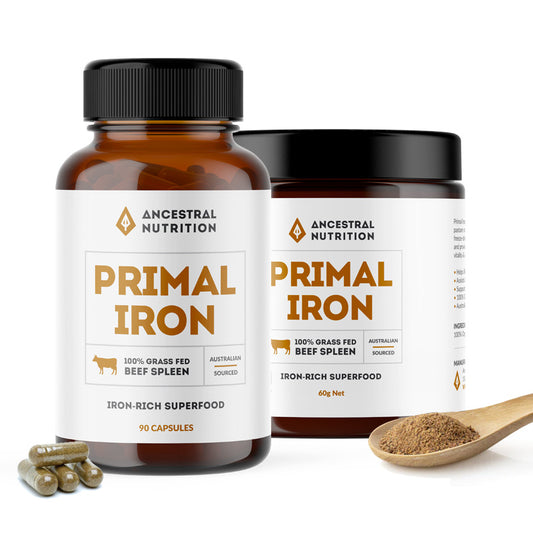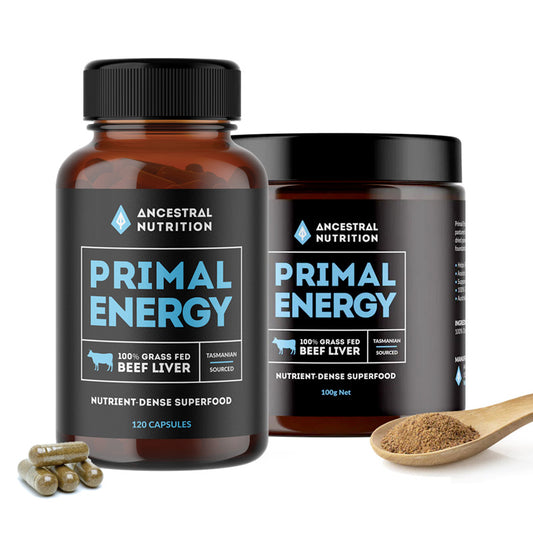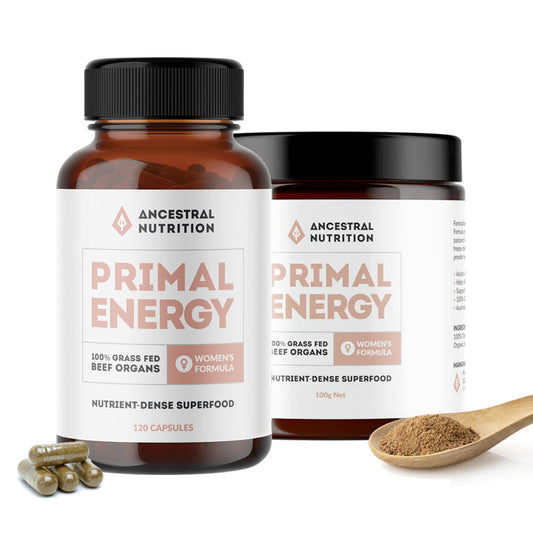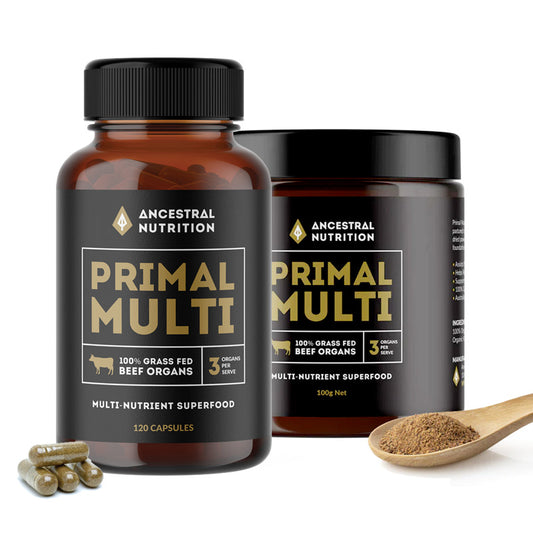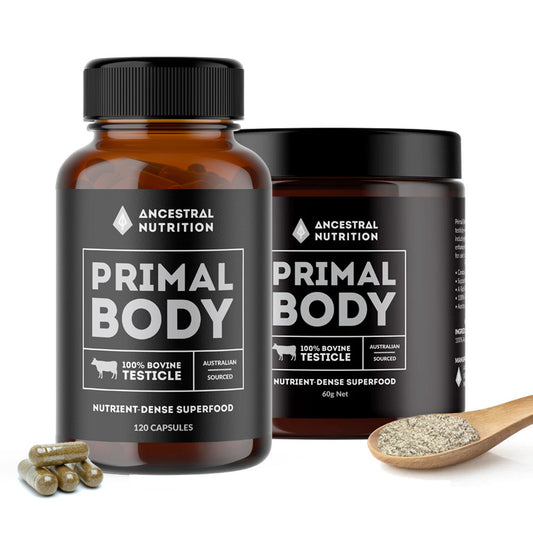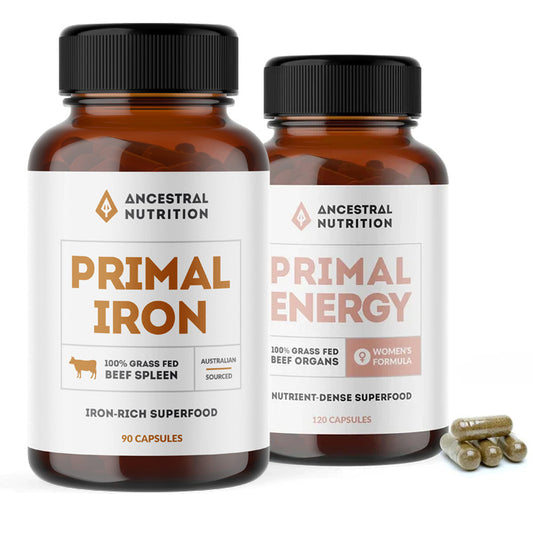Why Copper is Gold as an Essential Mineral
article by Ancestral Nutrition

Copper is an essential trace mineral that plays a vital role in maintaining overall wellbeing. Although needed in small amounts, it supports many fundamental biological processes — from iron metabolism and energy production to antioxidant defence and connective tissue formation.
In this article, we explore the benefits of dietary copper, where to find it, and why beef liver and other beef organs are among the richest natural sources.
The Role of Copper in Human Health
Copper contributes to several important physiological functions, including:
-
Iron metabolism – supports normal iron absorption and red blood cell formation
Collagen and connective tissue – involved in the structure of skin, cartilage, and blood vessels - Antioxidant defence – contributes to the activity of antioxidant enzymes such as superoxide dismutase
- Energy production – plays a role in mitochondrial function and the release of energy from food
- Nervous system support – involved in the normal functioning of the brain and nerves
-
Pigmentation – supports normal skin and hair pigmentation
Food Sources of Copper
Copper can be obtained through a variety of whole foods. Some of the richest sources include:
- Beef liver and organ meats – among the most concentrated sources of dietary copper
- Shellfish – including oysters and crab
- Nuts and seeds – especially sunflower seeds and cashews
- Whole grains and legumes – such as oats, lentils, and chickpeas
- Green leafy vegetables – like spinach and kale
-
Dark chocolate – in moderate quantities, with high cocoa content
Signs of Inadequate Copper Intake
While copper deficiency is uncommon in people consuming a varied diet, insufficient intake may affect normal metabolic functions. Copper contributes to:
- Normal red blood cell formation
- The maintenance of connective tissues
- Immune system support
- Energy production
- Antioxidant protection
If you're concerned about your copper intake or nutrient status, it's best to speak with your healthcare professional and consider a nutrient panel through a qualified practitioner.
The Nutritional Benefits of Beef Liver and Organs
Beef liver is one of the most nutrient-dense foods available, offering a rich combination of essential vitamins and minerals, including:
- Copper – highly bioavailable and naturally occurring
- Vitamin A – supports normal vision, immune function, and skin health
- Iron and B12 – contribute to energy production and red blood cell formation
- Zinc and selenium – support immune health and antioxidant defence
-
CoQ10 – naturally occurring in organs such as liver and heart
Other organs such as beef heart and kidney also offer a range of beneficial nutrients and have been traditionally valued as part of a whole-food, nose-to-tail approach to eating.
Supplementing with Freeze-Dried Beef Organs
For those looking for a convenient way to support their nutrient intake from whole food sources, freeze-dried beef organ supplements are an easy addition to a balanced diet.
Our Primal Energy beef liver supplements are:
- 100% grass-fed and grass-finished from Tasmania
- Free from hormones, antibiotics, and GMOs
- Freeze-dried to preserve nutrients
- Non-defatted to retain naturally occurring fat-soluble vitamins
These capsules provide a concentrated source of naturally occurring copper, along with a wide spectrum of complementary nutrients — all from real food.
Learn More About Freeze-Dried Organs Here.

